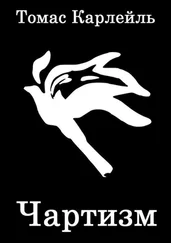Томас Карлейль - History of Friedrich II of Prussia — Volume 19
Здесь есть возможность читать онлайн «Томас Карлейль - History of Friedrich II of Prussia — Volume 19» — ознакомительный отрывок электронной книги совершенно бесплатно, а после прочтения отрывка купить полную версию. В некоторых случаях можно слушать аудио, скачать через торрент в формате fb2 и присутствует краткое содержание. Жанр: foreign_prose, История, literature_19, foreign_edu, foreign_antique, на английском языке. Описание произведения, (предисловие) а так же отзывы посетителей доступны на портале библиотеки ЛибКат.
- Название:History of Friedrich II of Prussia — Volume 19
- Автор:
- Жанр:
- Год:неизвестен
- ISBN:нет данных
- Рейтинг книги:4 / 5. Голосов: 1
-
Избранное:Добавить в избранное
- Отзывы:
-
Ваша оценка:
- 80
- 1
- 2
- 3
- 4
- 5
History of Friedrich II of Prussia — Volume 19: краткое содержание, описание и аннотация
Предлагаем к чтению аннотацию, описание, краткое содержание или предисловие (зависит от того, что написал сам автор книги «History of Friedrich II of Prussia — Volume 19»). Если вы не нашли необходимую информацию о книге — напишите в комментариях, мы постараемся отыскать её.
History of Friedrich II of Prussia — Volume 19 — читать онлайн ознакомительный отрывок
Ниже представлен текст книги, разбитый по страницам. Система сохранения места последней прочитанной страницы, позволяет с удобством читать онлайн бесплатно книгу «History of Friedrich II of Prussia — Volume 19», без необходимости каждый раз заново искать на чём Вы остановились. Поставьте закладку, и сможете в любой момент перейти на страницу, на которой закончили чтение.
Интервал:
Закладка:
REICH-HENNERSDORF, 9th JUNE. "My congratulations on the excellent success you have had [out in Frankenland yonder]! Your prisoners, we hear, are 3,000; the desertion and confusion in the Reichs Army are affirmed to be enormous:—I give those Reichs fellows two good months [scarcely took so long] to be in a condition to show face again. As for ourselves, I can send you nothing but contemptibilities. We have never yet had the beatific vision of Him with the Hat and Consecrated Sword [Papal Daun, that is]; they amuse us with the Sieur Loudon instead;—who, three days ago [7th July, two days] did us the honor of a visit, at the Gallows of Liebau. He was conducted out again, with all the politeness imaginable, on to near Schatzlar," well over the Bohemian Border; "where we flung a score of cannon volleys into the"—into the "DERRIERE of him, and everybody returned home." [In SCHONING, ii. 65: "9th June, 1759."]
Perhaps the only points now noticeable in this tedious Landshut interim, are Two, hardly noticed then at all by an expectant world. The first is: That in the King's little inroad down to Trautenau, just mentioned, four cannon drawn by horses were part of the King's fighting gear,—the first appearance of Horse Artillery in the world. "A very great invention," says the military mind: "guns and carriages are light, and made of the best material for strength; the gunners all mounted as postilions to them. Can scour along, over hill and dale, wherever horse can; and burst out, on the sudden, where nobody was expecting artillery. Devised in 1758; ready this Year, four light six-pounders; tried first in the King's raid down to Trautenau [June 29th-30th]. Only four pieces as yet. But these did so well, there were yearly more. Imitated by the Austrians, and gradually by all the world." [Seyfarth, ii. 543.]
The second fact is: That Herr Guichard (Author of that fine Book on the War-methods of the Greeks and Romans) is still about Friedrich, as he has been for above a year past, if readers remember; and, during those tedious weeks, is admitted to a great deal of conversation with the King. Readers will consent to this Note on Guichard; and this shall be our ultimatum on the wearisome Three Months at Landshut.
MAJOR QUINTUS ICILIUS. "Guichard is by birth a Magdeburger, age now thirty-four; a solid staid man, with a good deal of hard faculty in him, and of culture unusual for a soldier. A handy, sagacious, learned and intelligent man; whom Friedrich, in the course of a year's experience, has grown to see willingly about him. There is something of positive in Guichard, of stiff and, as it were, GRITTY, which might have offended a weaker taste; but Friedrich likes the rugged sense of the man; his real knowledge on certain interesting heads; and the precision with which the known and the not rightly known are divided from one another, in Guichard.
"Guichard's business about the King has been miscellaneous, not worth mention hitherto; but to appearance was well done. Of talk they are beginning to have more and more; especially at Landshut here, in these days of waiting; a great deal of talk on the Wars of the Ancients, Guichard's Book naturally leading to that subject. One night, datable accidentally about the end of May, the topic happened to be Pharsalia, and the excellent conduct of a certain Centurion of the Tenth Legion, who, seeing Pompey's people about to take him in flank, suddenly flung himself into oblique order [SCHRAGE STELLUNG, as we did at Leutheu], thereby outflanking Pompey's people, and ruining their manoeuvre and them. 'A dexterous man, that Quintus Icilius the Centurion!' observed Friedrich. 'Ah, yes: but excuse me, your Majesty, his name was Quintus Caecilius,' said Guichard. 'No, it was Icilius,' said the King, positive to his opinion on that small point; which Guichard had not the art to let drop; though, except assertion and counter-assertion, what could be made of it there? Or of what use was it anywhere?
"Next day, Guichard came with the book [what "Book" nobody would ever yet tell me], and putting his finger on the passage, 'See, your Majesty: Quintus CAEcilius!' extinguished his royal opponent. 'Hm,' answered Friedrich: 'so?—Well, you shall be Quintus Icilius, at any rate!' And straightway had him entered on the Army Books 'as Major Quintus Icilius;' his Majorship is to be dated '10th April, 1758' (to give him seniority); and from and after this '26th May, 1759,' he is to command the late Du Verger's Free-Battalion. All which was done:—the War-Offices somewhat astonished at such advent of an antique Roman among them; but writing as bidden, the hand being plain, and the man an undeniable article. Onward from which time there is always a 'Battalion Quintus' on their Books, instead of Battalion Du Verger; by degrees two Batallions Quintus, and at length three, and Quintus become a Colonel:—at which point the War ended; and the three Free-Battalions Quintus, like all others of the same type, were discharged." This is the authentic origin of the new name Quintus, which Guichard got, to extinction of the old; substantially this, as derived from Quintus himself,—though in the precise details of it there are obscurities, never yet solved by the learned. Nicolai, for example, though he had the story from Quintus in person, who was his familiar acquaintance, and often came to see him at Berlin, does not, with his usual punctuality, say, nor even confess that he has forgotten, what Book it was that Quintus brought with him to confute the King on their Icilius-Caecilius controversy; Nicolai only says, that he, for his part, in the fields of Roman Literature and History, knows only three Quintus-Iciliuses, not one of whom is of the least likelihood; and in fact, in the above summary, I have had to INVERT my Nicolai on one point, to make the story stick together. [Nicolai, Anekdoten, vi. 129-145.]
"Quintus had been bred for the clerical profession; carefully, at various Universities, Leyden last of all; and had even preached, as candidate for license,—I hope with moderate orthodoxy;—though he soon renounced that career. Exchanged it for learned and vigorous general study, with an eye to some College Professorship instead. He was still hardly twenty-three, when, in 1747, the new Stadtholder," Prince of Orange, whom we used to know, "who had his eye upon him as a youth of merit, graciously undertook to get him placed at Utrecht, in a vacancy which had just occurred there,—whither the Prince was just bound, on some ceremonial visit of a high nature. The glad Quintus, at that time Guichard and little thinking of such an alias, hastened to set off in the Prince's train; but could get no conveyance, such was the press of people all for Utrecht. And did not arrive till next day,—and found quarter, with difficulty, in the garret of some overflowing Inn.
"In the lower stories of his Inn, solitary Guichard, when night fell, heard a specific GAUDEAMUS going on; and inquired what it was. 'A company of Professors, handselling a newly appointed Professor;'—appointed, as the next question taught, to the very Chair poor Quintus had come for! Serene Highness could not help himself; the Utrechters were so bent on the thing. Quintus lay awake, all night, in his truckle-bed; and gloomily resolved to have done with Professorships, and become a soldier. 'If your Serene Highness do still favor me,' said Quintus next day, 'I solicit, as the one help for me, an ensign's commission!'—And persisted rigorously, in spite of all counsellings, promises and outlooks on the professorial side of things. So that Serene Highness had to grant him his commission; and Quintus was a soldier thenceforth. Fought, more or less, in the sad remainder of that Cumberland-Saxe War; and after the Peace of 1748 continued in the Dutch service. Where, loath to be idle, he got his learned Books out again, and took to studying thoroughly the Ancient Art of War. After years of this, it had grown so hopeful that he proceeded to a Book upon it; and, by degrees, determined that he must get to certain Libraries in England, before finishing. In 1754, on furlough, graciously allowed and continued, he came to London accordingly; finished his manuscript there (printed at the Hague 1757 [ Memoires Militaires sur les &c. (a La Haye, 1757: 2 vols. 4to);—was in the 5th edition when I last heard of it.]): and new War having now begun, went over (probably with English introductions) as volunteer to Duke Ferdinand. By Duke Ferdinand he was recommended to Friedrich, the goal of all his efforts, as of every vagrant soldier's in those times:—and here at last, as Quintus Icilius, he has found permanent billet, a Battalion and gradually three Battalions, and will not need to roam any farther.
Читать дальшеИнтервал:
Закладка:
Похожие книги на «History of Friedrich II of Prussia — Volume 19»
Представляем Вашему вниманию похожие книги на «History of Friedrich II of Prussia — Volume 19» списком для выбора. Мы отобрали схожую по названию и смыслу литературу в надежде предоставить читателям больше вариантов отыскать новые, интересные, ещё непрочитанные произведения.
Обсуждение, отзывы о книге «History of Friedrich II of Prussia — Volume 19» и просто собственные мнения читателей. Оставьте ваши комментарии, напишите, что Вы думаете о произведении, его смысле или главных героях. Укажите что конкретно понравилось, а что нет, и почему Вы так считаете.









